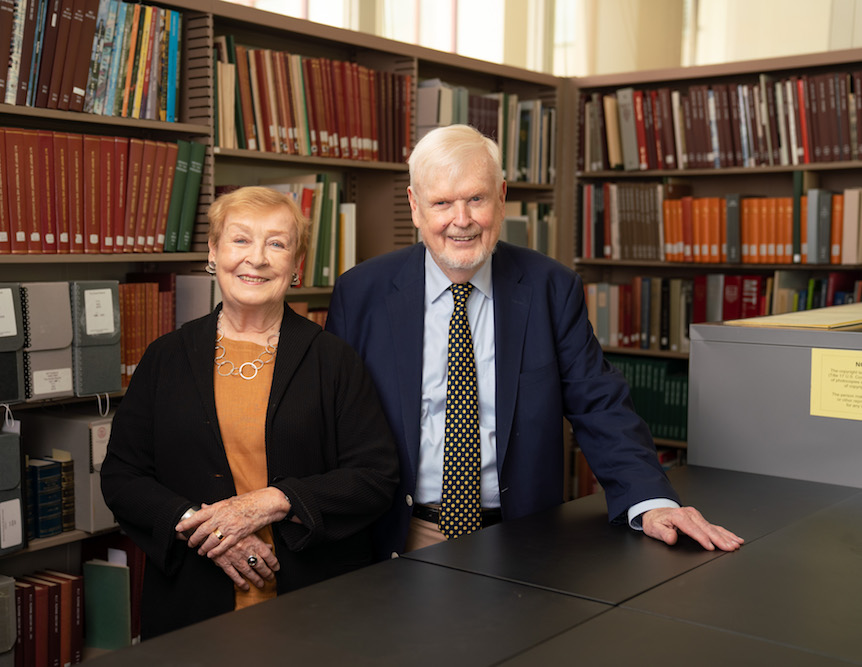
Photo: Bryce Vickmark
Around the time Sputnik 1 entered Earth’s orbit, a distinguished career in science journalism was also launched. As a young reporter for the Charlotte Observer, Victor McElheny was called upon to write about the space race and other issues in science at a time when the public was increasingly awakening to its impact on their lives.
“Science isn’t just happening in the minds of geniuses,” says McElheny. “It changes the daily lives of ordinary people.”
McElheny would go on to found MIT’s Knight Science Journalism (KSJ) Program and, as its director for 15 years, pursue a mission to improve public understanding of science and technology.
In his early years as a science reporter, McElheny exhibited an archivist’s impulse. He began collecting science-related newspaper and magazine articles, news releases, and notes, building a resource he could refer to as he continued to cover science and technology. He kept it up for 60 years.
“It was like a naturally accreting coral reef of the popular discussion of science,” says McElheny, who gave more than 350 boxes of his papers to the Institute Archives and Special Collections in 2012. “The collection seemed relevant to MIT’s mission. I thought it could potentially have extra value by being here, by being preserved and made accessible.”
Indeed the collection has provided what McElheny calls, “the sense of a usable past.” His records joined other documents from the KSJ program’s history such as course materials, publications, and photographs. The collection, which has been used by KSJ fellows, researchers, and Science, Technology, and Society doctoral students, tells a multifaceted story of the public understanding of technology and science, one in which MIT plays a central role.
The Institute Archives was also a critical resource for McElheny as he wrote biographies of Edwin Land and James Watson and a history of the Human Genome Project.
McElheny and his wife, Ruth, share a passion for libraries (“We even visit them on vacation,” she says) and believe in their power as an institution. The McElhenys recently made a generous gift to MIT Libraries to support the work of the Institute Archives. Further, they have made a planned gift to ensure that its collections will be accessible to researchers, journalists, and the public for years to come.
So what does Victor make of the current moment, when scientists march on Washington, smart phones rule our lives, and climate change will force new ways of building cities? “It’s almost too interesting,” he says. And more critical than ever for a community like MIT to share its knowledge, and continue the conversation, with the rest of the world.
